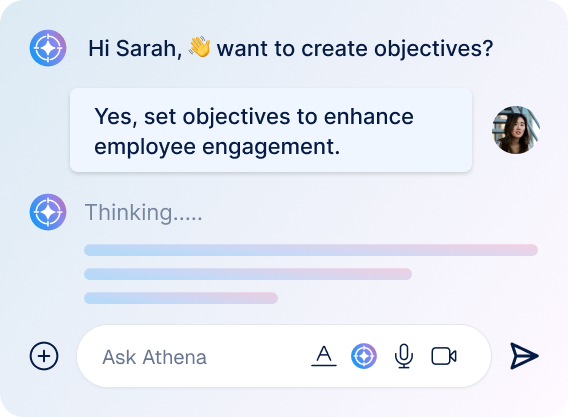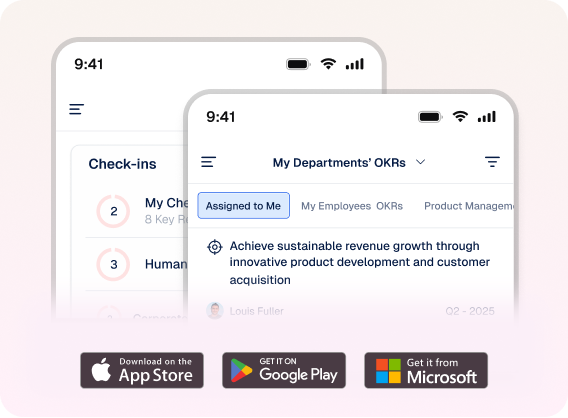Intro
If you’re at all familiar with the OKR framework, you have probably already used the PPP methodology, or P-cubed methodology, to help structure your OKR reviews. PPP stands for progress, plans, and problems. This is a simple management technique used to help team members create well-structured and consistent status reports that are informative, but to-the-point.When you’re surrounded by people who share a passionate commitment around a common purpose, anything is possible.
To manage your PPP methodology on an agile and intuitive OKR software that can catalogue your progress, look no further than Profit.co.
The Shift from PPP to ProProPro
Recently, there has been a shift from the “PPP” methodology to the “ProProPro” methodology. Instead of “planning” for the upcoming period, many managers are asking their employees to instead set “promises”. ‘Plan’ and ‘Promise’ naturally have different connotations. For example, let’s say that you have a key result to “Increase # of Twitter followers from 1200 to 3000”. In the ‘progress’ section of your PPP report, you might say that you have reached 1400 followers. In the ‘problems’ section, you could say that your content isn’t getting as many views as you need to gain followers. Your ‘plan’ might be to post three times per day on social media rather than once per day in order to increase your content views and drive up your follower count. However, when you went to execute that plan, you might have run out of content ideas, focused on other initiatives, or not been able to keep up with your three-per-day goal. Next week you might recommit to this ‘plan’— and many people would say this is fine, considering that things don’t always go according to plan. Now, many business leaders are re-branding this part of the PPP report as the ‘promise’ section. This is where you don’t just make plans without a thought of how to execute them— you commit to promises that you will actively try to fulfill. Instead of saying you’ll post three times per day, you will promise to post three times per day. This word holds a greater sense of commitment and accountability. There is more of a drive to do everything in your power to keep this promise and not break it. ‘Promise’ is a word that is naturally outcome-oriented.
This is not the first time that we’ve seen the terms in a methodology shift to more active, outcome-oriented language. Take the PDCA methodology for example.
PDCA is a common goal-setting cycle that stands for Plan, Do, Check, and Act. Some leaders, however, took issue with the word ‘Plan’ once again. “Plan” is too non-committal, and more commonly associated with phrases like “this isn’t going according to plan” than it is with success and precision. So, the ‘Plan’ step was replaced with the ‘Commit’ step.
Similar to “promise”, commit is an active verb that denotes accountability. When you are committed to something, you are willing to try everything in your power to see it through.
Although these are just terms in methodologies, the power of language can help affect real change in your organization. It’s important for team members to have a sense of accountability and commitment when they think about executing their plans and fulfilling their OKRs. So, there has been a large shift from the PPP methodology to the ProProPro methodology.



